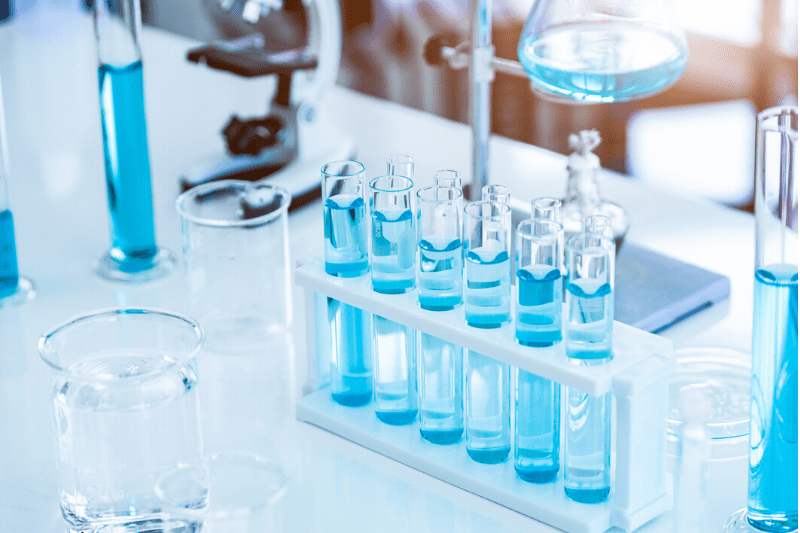
Biologics have revolutionized the treatment of many chronic and serious conditions. For example, TNF-α inhibitor biologics block tumor necrosis factor that trigger joint-destroying inflammation in people with rheumatoid arthritis (RA), while biologic B-cell inhibitors bring effective relief to people with RA when other treatments have failed.
While safe, effective and popular, several aspects can make these biologics difficult or expensive to produce. Currently, a type of medicine known as biosimilar drugs is finding its way into prescription bottles across the United States and Europe.
Biosimilars are not generic drugs, which are exact atom-for-atom copies of existing name-brand, small molecule drugs. Because of the living nature of biologic medicines, biosimilars are unlikely to be exact duplicates of their reference products. Instead, biosimilars are new versions of existing biopharmaceuticals.
As the name suggests, biosimilars are highly similar to existing biologic medicine, known as reference products, when it comes to quality, safety and efficacy.
Because they are similar to existing off-patent drugs that have already gone through extensive and expensive testing and approval, biosimilars do not need to undergo these expensive processes. This means that biosimilar drugs may be significantly less expensive than the drugs after which they are modeled. Therefore, allow patients to allocate financial resources to other areas of patient care.
Nevertheless, other than cost saving, biosimilars should produce the same results as the original drug, and with the same efficacy and safety.
Biologics: The Ever-Important Reference Product
Biologics contain large, complex molecules or mixtures of molecules that may be made of living human, animal, bacteria or yeast cells. Clinicians currently prescribe biologics to treat a number of chronic conditions, such as rheumatoid arthritis, psoriasis, inflammatory bowel disease, anemia, and some cancers. Specifically, monoclonal antibodies can treat rheumatoid arthritis, Crohn’s disease and some types of cancer.
Creating a biologic is more complicated than making conventional, small-molecule medicines, such as aspirin. The process of creating small-molecule medicines is exact and well defined due to the use of chemicals to produce consistent results.
However, because biologics are produced from living cells, usually antibodies, the complex molecules contained in biologics are sensitive to heat, light and bacteria. Minute changes in the manufacturing process can significantly affect the large molecules of biologics. For that reason, drug manufacturers must produce these drugs under tightly controlled conditions.
Enter Biosimilars
Biosimilars are relatively new to the American market. Enacted as part of the Affordable Care Act, the Biologics Price Competition and Innovation Act of 2009 (BPCIA) provided a pathway for biosimilars to gain FDA approval. This new pathway has been moderately successful in bringing a first generation of biosimilars to the U.S. market, and at a relatively rapid pace. In fact, it takes only 10 to 20 months to move from FDA acceptance to approval.
As of September 2019, there were 83 biosimilars development programs registered with the FDA for 38 different biologic drugs. By November 15, 2019, 25 biosimilars had received FDA approval.
To gain FDA approval for use in the U.S., manufacturers must prove that their biosimilars will:
- Work the same way as the original biologic medicine; it must also have the same strength and dosage, so patients can take them in the same way as their reference products
- Not have any clinically meaningful differences in safety or effectiveness compared to their reference products
- Have the same high standards of manufacturing as their reference products
Researchers and regulatory parties, such as the FDA, recurrently use extrapolation of data to demonstrate biosimilarity to a reference product. With sufficient scientific justification based on extrapolation of indications, the FDA may approve a biosimilar for one or more conditions for which the reference product has already received approval.
In essence, the biosimilar could replace the reference product without affecting efficacy or safety. Nonetheless, biosimilars must meet additional standards to gain interchangeability, different than those required to obtain approval as a biosimilar. To date, the FDA has not granted the interchangeable designation to any biosimilar approved in the United States. This is partly due to the fact that until May 2019 the FDA had not published a final guidance on how manufacturers could demonstrate interchangeability with a reference product.
Today, at least one company, Boehringer Ingelheim, has publicly announced it has begun an interchangeability study for its adalimumab biosimilar.
In 2015, Puerto Rico amended its Pharmacy Law to include the definitions of “biosimilar product” and “interchangeable biological product“; and to establish the requirements for the dispensation and interchangeability of biological products. According to the Puerto Rico law, a pharmacist may only substitute a biological product for a product classified as “interchangeable” by the FDA. Hence, when the intention is prescribing a biosimilar, the prescriber should write the proprietary name of the biosimilar product, not the name of the reference biological product (e.g., Renflexis or Inflectra instead of Remicade).
Naming convention can facilitate pharmacovigilance for the reference product, related biological products, and biosimilars. Under the FDA’s naming convention, the nonproprietary name for each originator biological product and biosimilar will be a proper name that combines the core name with a distinguishing suffix that contains four lowercase letters. The distinguishing suffix should be devoid of meaning.
For more information on biosimilars for the treatment of chronic and complex health conditions, contact Special Care Pharmacy Services. As the leading specialty pharmacy in Puerto Rico, we have the knowledge, the specialty drugs and the patient care services needed to help patients lead a better quality of life.